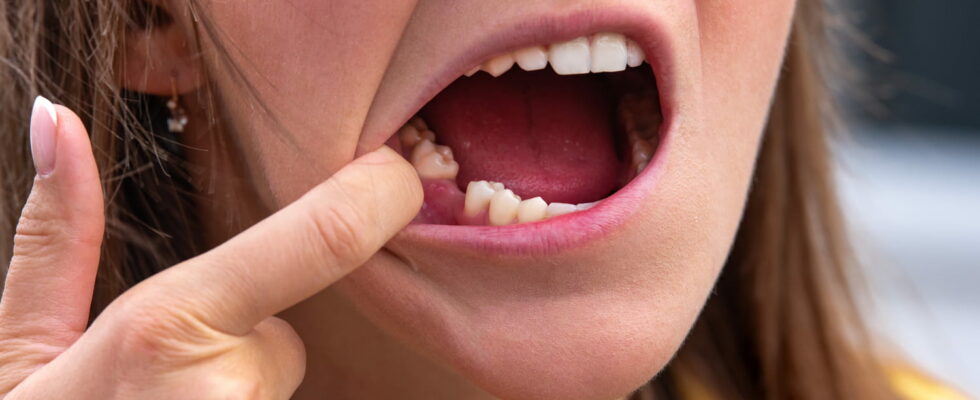They are working on the “third” dentition.
What if we could regain a pretty smile thanks to medication? Japanese researchers are working there. Due to an illness born at birth, acquired later or due to an accident, you may have to deal with tooth loss that is difficult to accept. It is a common health problem in almost all age groups, especially in aging populations. There are solutions such as prostheses, transplants and dental implants but they are expensive, invasive and not available to all populations. Based on this observation, scientists decided to look into dental regeneration.
Humans develop two successive sets of teeth, namely the temporary dentition (milk teeth) and the permanent dentition. But in addition to the permanent dentition, a “third dentition” with one or more teeth may appear. According to Katsu Takahashi, head of the oral surgery department who is leading the research, this third generation of teeth remains hidden under our gums, in “dormant buds”. After several preliminary studies on ferrets and mice, his team launched clinical trials on humansKyoto University Hospital in October 2024, by giving adults an experimental drug that they say has the potential to restart the growth of these hidden teeth. How ?
Our body has genes that control the development of our teeth, including their number. One of these genes is called USAG-1. Sometimes, due to certain genetic mutations, people can have missing (dental agenesis) or extra teeth. “We identified USAG-1 as a target molecule to increase the number of teeth and we produced anti-USAG-1 neutralizing antibodies as potential therapeutic agents for the treatment of congenital tooth agenesis” they explained in Regenerative Therapy. These antibodies can potentially save the tooth germ and even awaken its regrowth. Following their initial tests, the researchers published laboratory photographs of regrown animal teeth.
Better yet, scientists support the idea that the location of new teeth in the mouth can be controlled, or even localized, simply by the drug injection site. “And if the problem develops in the wrong place, it can be moved by orthodontics or transplantation”shared Katsu Takahashi to Agence France Presse, relayed by medicalxpress.com.
These findings offer new prospects for developing treatments to regenerate teeth in people with missing (or extra) teeth by manipulating the genes and cells responsible for tooth growth. For the moment, human trials are primarily targeting “urgent” needs such as patients with several teeth missing since birth. Researchers hope to be able to offer a drug based on this molecular therapy in 2030.
